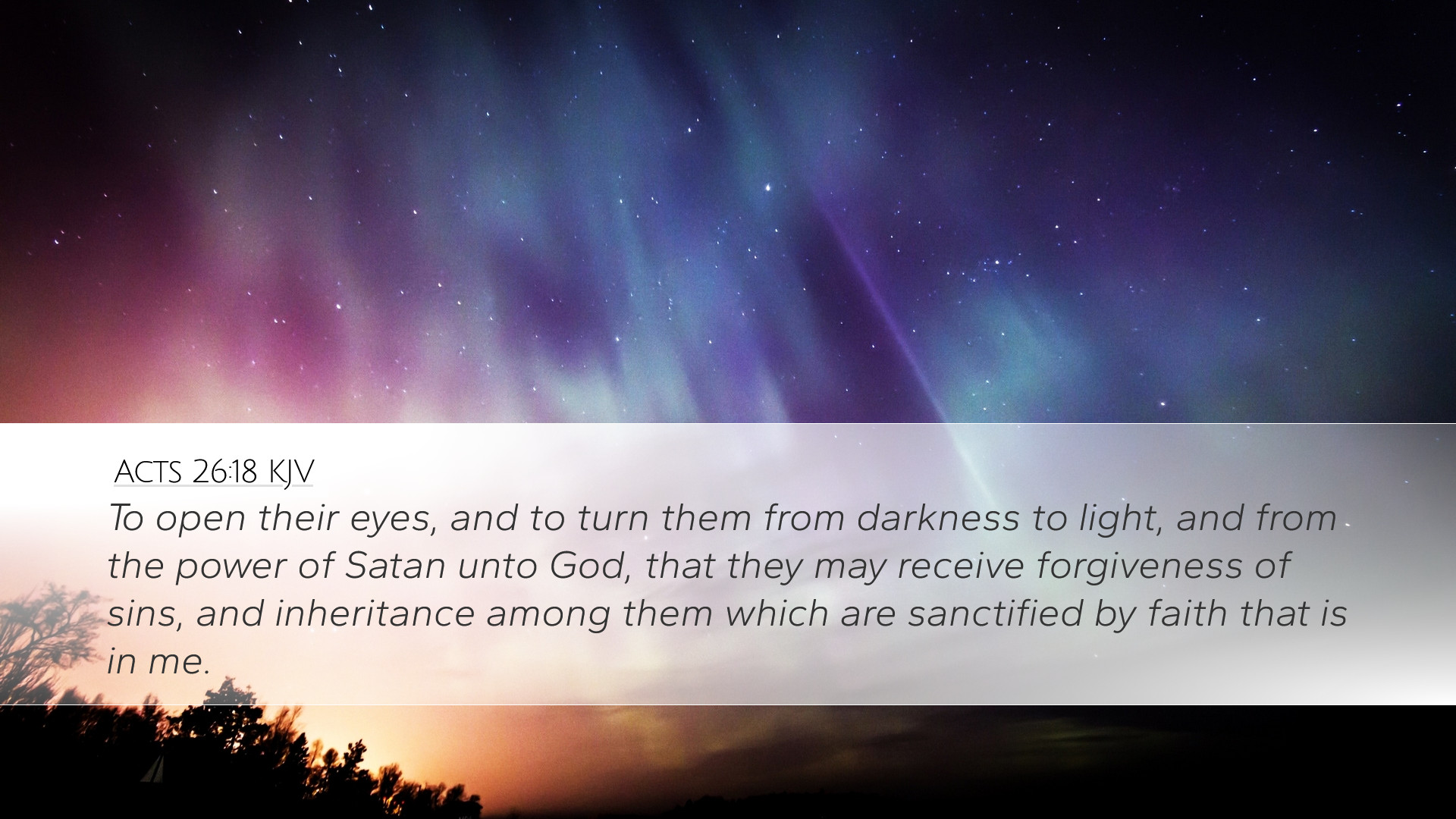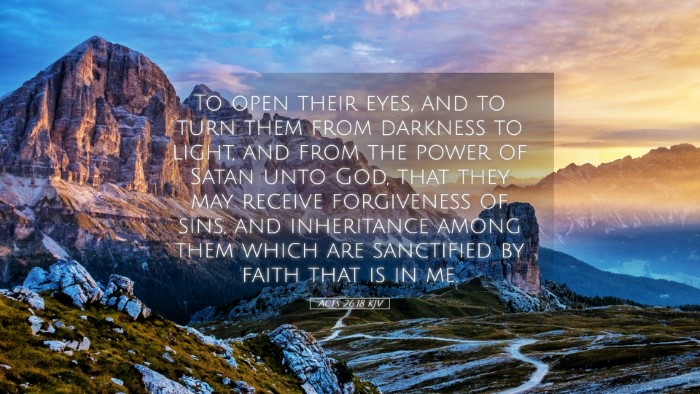Contextual Overview
This verse is part of Paul's defense before King Agrippa, where he recounts his encounter with Christ on the road to Damascus and the commission he received from the Lord. It outlines the transformative purpose of his mission, emphasizing enlightenment, conversion, and the offer of salvation.
Exegesis
Opening Eyes: The phrase “to open their eyes” suggests a divine initiative to bring understanding and insight into spiritual truths. Albert Barnes emphasizes that this opening is necessary for one to truly perceive the state of their soul and the wonderful grace of God.
Darkness to Light: Adam Clarke remarks on the significant transition from “darkness to light.” Darkness symbolizes ignorance, sin, and separation from God, while light represents knowledge, purity, and communion with the Divine. This is resonant with Isaiah 42:7, which emphasizes the role of the Messiah in guiding the blind to light.
Power of Satan unto God: Here, we observe a transfer of allegiance. Matthew Henry articulates this as a liberation from the dominion of evil to the sovereignty of God, where individuals are called to relinquish their past bondage and fully embrace the lordship of Christ.
Forgiveness of Sins: This crucial part of the verse underscores the core message of the Gospel—redemption through Christ’s sacrifice. Clarke notes that forgiveness is a foundational aspect of the Christian faith, providing assurance of salvation and inner peace to believers.
Inheritance among the Sanctified: The inheritance promised here refers to the spiritual blessings afforded to believers. Matthew Henry connects this to the doctrine of adoption, where believers are considered children of God, leading to eternal life and the joy of eternal communion with Him.
Pastoral Applications
For pastors, this verse serves as a foundational text in preaching the message of conversion. Addressing the blindness of sin, the necessity for divine intervention, and the hope of salvation is critical in gospel ministry.
- Encouragement for Evangelism: The call to open eyes and turn hearts reminds pastors to actively share the Gospel, trusting in the Holy Spirit's work in conviction and conversion.
- Discipleship Focus: This passage serves as a basis for teaching new believers about their identity in Christ and the importance of nurturing their faith for sustained spiritual growth.
- Celebration of Grace: Pastors should encourage congregations to celebrate the grace of God, emphasizing forgiveness and the hope of eternal life as central themes in community worship.
Conclusion
Acts 26:18 provides profound insights into the Christian experience of conversion and the believer’s journey from spiritual blindness to illumination. Namely, it reflects the overarching theme of God’s redemptive work through Christ. As this verse serves as a powerful reminder of the hope Christians have in the face of darkness, it also calls for an active response in proclaiming the truth and love of God to a world still in need of opening their eyes.


